II Historical Memory conference. Seseña
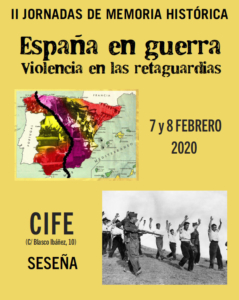
II Historical Memory conference. Seseña
Spain at war. Violence in the rear
February 7 and 8, 2020, Seseña (Toledo))
Our partner Miriam Saqqa Carazo will participate in the conference.

Our partner Miriam Saqqa Carazo will participate in the conference.
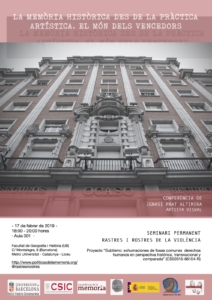
Conference by:
Guardar
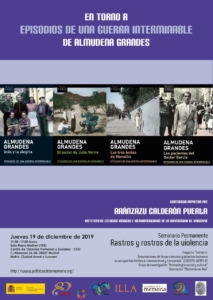 Conference by:
Conference by:
Aránzazu Calderón Puerta
(Institute of Iberian and Ibero-American Studies of the University of Warsaw)
Thursday 19 December 2019
Free entrance
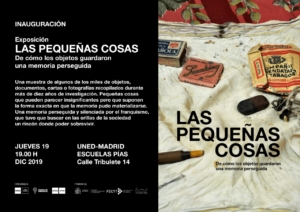
A sample of some of the thousands of objects, documents, letters or photographs collected during more than ten years of research. Small things that may seem insignificant but that assume the exact way in which memory could materialize. A memory persecuted and silenced by Francoism, who had to look on the banks of society for a place to survive.
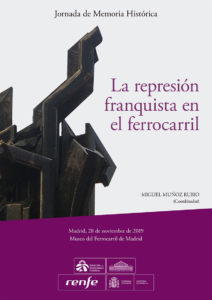
This Railway Historical Memory Day has the purpose of deepening the historical knowledge of what Franco’s repression on the railway meant.
That is why it has brought together a group of accredited researchers with a double purpose. On the one hand, acrisolar the understanding of all repressive chapters. And, on the other, to speak about the analytical meaning and the social repercussion that the memoralist movement has generated during these last years. The only way to achieve these purposes is to organize a day that brings together different knowledge disciplines and different approaches. It is intended both to confirm paradigms and to open new lines of interpretation.
Miriam Saqqa will give the lecture: Where? Rail mass grave and exile.
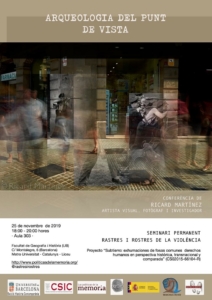
Conference by:
Free entry
How to get?
Guardar
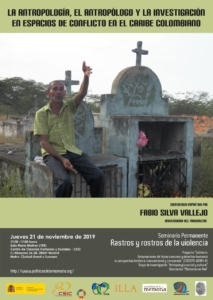 Conference by:
Conference by:
Fabio Silva Vallejo
(Magdalena University)
Thursday 21 November 2019
Free entrance
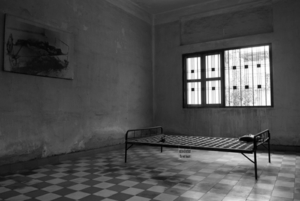
Mass crimes, acts of genocide and political violence have a “metaphysical” dimension against the human being, as highlighted by such diverse authors as Elie Wiesel and Vladimir Jankélévitch. However, whatever their conceptual scope, they are concrete acts that take place in precise places, take place in a unique time and their material actors are, at the end of the day, ordinary people. Reconstructing the scenes that result from these acts means returning to the actions the immediacy and even the banality that they had at the time of their exercise. Now, once the facts have been reconstructed, these same scenarios acquire a new symbolic and cultural condition, they are resemantized in different social spheres: in the criminal processes that reconstruct them, in the memory of victims, executioners and witnesses, in the visual and written archives that describe them and, last but not least, in artistic, literary and cinematographic recreation.
Francisco Ferrándiz will give the conference: Scenarios of crime against humanity: Mass Graves, Forensic Rescue and Phantom Militarism in Spain
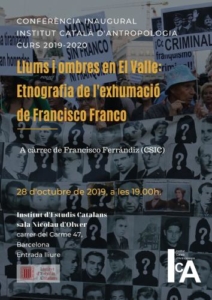
Place: Institut d’Estudis Catalans, Sala Nicolau d’Olwer carrer del Carme 47, Barcelona.
Free entry.
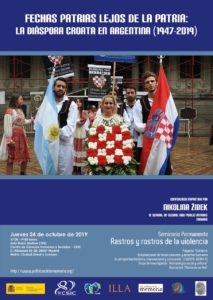 Conference by:
Conference by:
Nikolina Židek
(IE School of Global and Public Affairs Madrid)
Thursday 24 October 2019
Free entrance
El pasado bajo tierra: exhumaciones y políticas de la memoria en la España contemporánea en perspectiva transnacional y comparada
Proyectos Asociados:
HISTOFOR: PID2024-159223NB-I00 (2026-20289
MEM2OR: BICON24084 (2025-2026)
NECROPOL: PID2019-104418RB-I00 (2020-2024)
SUBTIERRO: CSO2015-66104-R (2016-2019)
UNREST: H2020 REFLECTIVE-5-2015, ref. 693523 (2016-2019)
PASADO BAJO TIERRA: CSO2012-32709 (2013-2015)
ISTME: COST Action IS1203 (2012-2016)
POLMEM: CSO2009-09681 (2010-2013)
SPBUILD: 7PM MARIE CURIE, ITN 238589 (2010-2013)
PIE CSIC: 200710I006 (2007-2009). Las políticas de la memoria en la España contemporánea
Centro de Ciencias Humanas y Sociales - Consejo Superior de Investigaciones Científicas.
Offices: 1F25 and 1F18
Albasanz 26-28.
Madrid 28037 (Spain)
politicasdelamemoria@gmail.com
